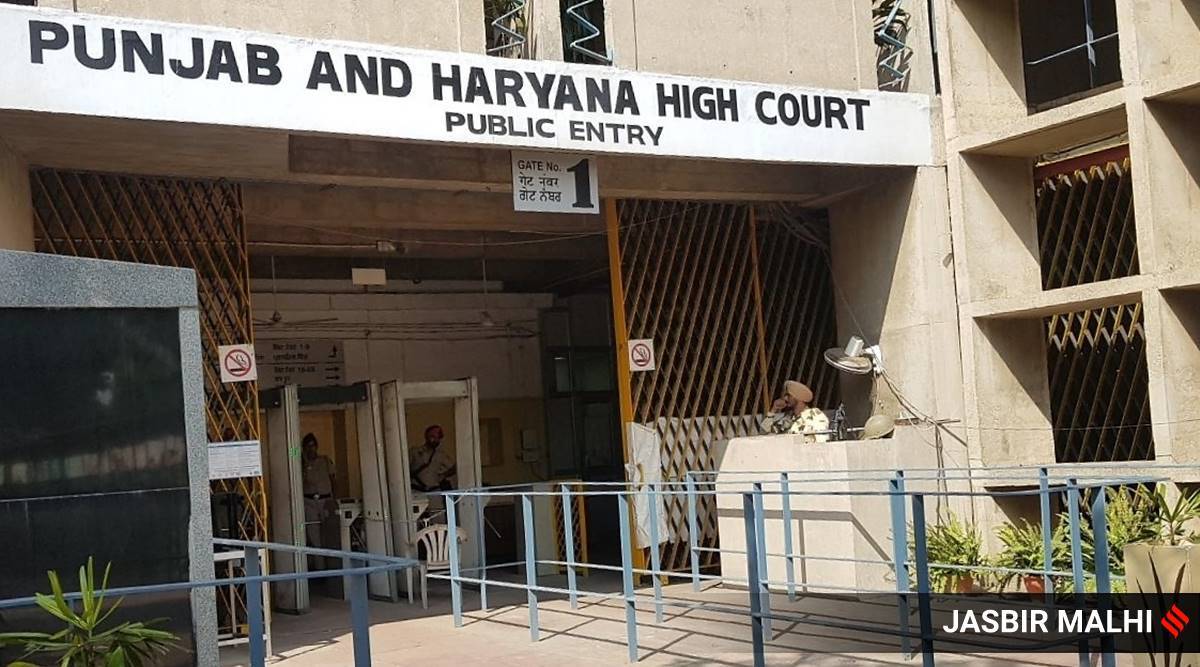 Nothing is available on record to show that the petitioners were carrying disease so as to attract offence punishable under Section 269 of IPC.
Nothing is available on record to show that the petitioners were carrying disease so as to attract offence punishable under Section 269 of IPC.The Punjab and Haryana High Court has quashed an FIR against two doctors booked for disobeying order by a public servant and spreading infection during the Covid-19 pandemic lockdown in May 2021.
A bench of Justice Karamjit Singh said that there is no prima facie evidence indicating that petitioners were suffering from any infectious disease or had tested positive for Covid-19 at the relevant time, so it could not be assumed that the petitioners were either the carriers of infection or would have caused the spread thereof.
The petitioners in the case are Dr Chandni and another qualified doctor. They had moved the high court for quashing of the FIR.
The FIR was registered against the doctors on May 30, 2021, under Sections 188 (Disobedience to order duly promulgated by public servant), 269 (Negligent act likely to spread infection of disease dangerous to life), 270 (Malignant act likely to spread infection of disease dangerous to life) of IPC and Section 51(b) of Disaster Management Act, 2005, at police station, Purani Sabji Mandi, Rohtak district.
As per the FIR, both the petitioners were found enjoying a party at a hotel despite the fact that the two were aware of the restrictions imposed by the district administration and the government to prevent the spread of Covid-19 virus. On enquiry, the petitioners admitted that they had organised the party after booking some rooms in the said hotel. Consequently, the FIR was registered.
Advocate Som Nath Tayal, counsel for both the petitioners, submitted that both are qualified doctors. At the relevant time they were working in Civil Hospital, Khanpur Kalan, Sonipat, and had come to Rohtak to meet their colleagues. Since they got late, they thought of staying in some hotel. They found Hotel Crown Inn – which is just opposite to the Civil Hospital – open at that time and they booked rooms in the hotel for an overnight stay. Also, there was nothing on record to show that the petitioners (on the hotel premises) were found to be infected with Covid-19 virus.
The State counsel opposing the plea contended that at the relevant time Covid-19 was at its peak and the government had taken all possible steps to prevent the spread of disease and as such restrictions were imposed regarding opening of private hotels and gathering of people. In the instant case, the petitioners had violated all the said restrictions despite being fully aware of them.
After hearing the matter, Justice Karamjit Singh said that as per the provisions of Section 195(1) of CrPC, it is the authority concerned (district magistrate) or his superior who was competent to make a complaint to prosecute the petitioners for an offence punishable under Section 188 of IPC.
“Admittedly, in the instant case, no such complaint was made by the authority concerned (district magistrate) or his superior, and thus the bar provided under Section 195(1) of CrPC is clearly applicable and the court cannot take cognisance of offence under Section 188 of IPC against the petitioners,” said the bench.
The high court said that in order to attract the penal provisions of Sections 269 and 270 of IPC, the act of an accused must be one which is likely to spread infection of any disease dangerous to life. There is no prima facie evidence indicating that petitioners were suffering from any infectious disease or had tested positive for coronavirus at the relevant time. So it could not be assumed that the petitioners were either the carriers of infection or would have caused the spread thereof, the high court added.
Nothing is available on record to show that the petitioners were carrying disease so as to attract offence punishable under Section 269 of IPC. Further, nothing is there on record to show that the petitioners malignantly did any act likely to spread infection so as to attract offence under Section 270 of IPC. Therefore the contention raised by the State counsel that the petitioners would spread Covid-19 infection was without any basis, the high court said.
Further Section 60 of the Disaster Management Act provides that no court can take cognisance of the aforesaid offence, except on a complaint made by the competent authority or any person, who has given prior notice of 30 days in the manner prescribed, the high court said. Admittedly, in this case, no such complaint was lodged. In the absence of it, the high court cannot take cognisance of offence punishable under Section 51(1)(b) of the Disaster Management Act, 2005.
Further, it appears that there was no intention on the part of the petitioners to spread the disease, said the high court while quashing the FIR.